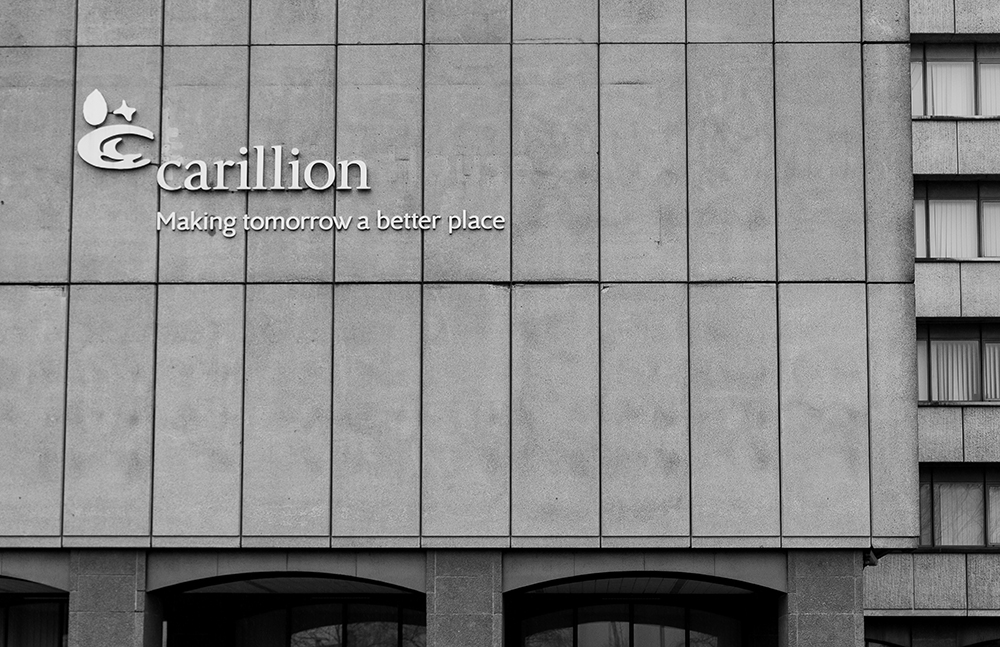Audit Reform
Serious delays in audit reform
Two pieces of recent news around audits have coincided to cause a buzz of conversation around audit reforms. The first is that KPMG UK is facing the latest in a string of multimillion-pound fines for failings in its supervision of the accounts of Rolls-Royce Holdings. The second is the dropping of a draft bill on audit reform from the Queen’s Speech. Stephen Baker, Senior Partner, Baker & Partners comments

I
t will be recalled that the draft Bill will, among other elements, establish a new statutory regulator, the Audit, Reporting and Governance Authority (ARGA), with enhanced powers including the power to enforce directors’ reporting duties; shared audits and other means of opening up the market. The news around KMPG UK in particular has given cause to reflect on their past audit failures.
Stephen Baker
Senior Partner
Baker & Partners
Wolverhampton used to be famous only for the football club. But Carillion plc was headquartered there – the construction company whose dissolution was officially, "the largest ever trading liquidation in the UK”. The auditor, KPMG, was implicated in the failure, of which more later.
In 2017, Rolls Royce agreed to pay hundreds of millions of pounds in penalties after protracted examination of allegations of bribery in UK, US and South America to procure supply contracts. Charges of corruption were on the putative indictment but here was a deferred prosecution agreement so that the matter did not come to trial. There were serious audit failures admitted, as witnessed by the fact that the audit partner in the case was fined £112,500 and the audit company was required to pay for an external review of its policies in investigating compliance at client companies. Who was the auditor? Yes – KPMG again.
KPMG UK are not the only big name to have come up the context of audit failures. Even with the collapse of café company, Patisserie Valerie, the auditors were heavily implicated. Grant Thornton were fined £2.3m for failures in their audits spanning three audit years. One of the individual auditors was fined £150,000 for his role in signing off the accounts. The corporate auditor admitted to failures to follow audit rules. Now it is ordered to submit an annual report demonstrating details of improvement in its auditing practices.

Image credit: Paul Rushton
However, the particularly high-profile nature of KPMG’s scandals, have caused very public criticisms over the years. For example, in February 20218 when commenting on the Carillion matter, Rachel Reeves, chair of the business select committee, said, “Auditing is a multi-million-pound business for the Big Four. On this morning's evidence from KPMG and Deloitte, these audits appear to be a colossal waste of time and money, fit only to provide false assurance to investors, workers and the public. [...] Carillion staff and investors could see the problems at the company but those responsible – auditors, regulators, and, ultimately, the directors – did nothing to stop Carillion being driven off a cliff.”
On that same occasion Peter Kyle MP famously shared some harsh thoughts with one of the KPMG partners: "I would not hire you to do an audit of the contents of my fridge".
A year after the Carillion liquidation, the total number of redundancies was reported as 3,038. Around £50m in redundancy payments had been paid up to September 2018, with the final bill likely to reach £65m. Of course, loss of jobs did not stop at the company itself. Unpaid supplier companies suffered the same fate together with bankruptcies.

Image credit: DCStockPhotography
In October 2018, a report from accountant Moore Stephens said Carillion's liquidation had triggered a 20% spike in the number of UK building firms becoming insolvent: 780 companies fell into insolvency in the first quarter of 2018, up a fifth on the same period in 2017, with small to medium-sized companies and specialist subcontractors particularly hard hit, having to write off virtually everything owed to them by Carillion. Total construction insolvencies in 2018 were up 13% to 2,954 companies, according to law firm Nockolds, who said fallout from Carillion's collapse had contributed to a spike in businesses folding.
In light of all of this, it can be said that the FRC does the best it can in an area which would make a risk assessment specialist blanch. Their performance for the KPMG / Rolls Royce matter despite its limited bandwidth is deserving of very high commendation. Engagement with the Regulator in any sector is almost always the right thing to do, proven by their sensible pragmatism in offering worthwhile reductions in sanctions when culprits have elected to engage.
The likelihood now is that the introduction of these or similar reforms is still some years away and the slow pace of audit reform has been deeply frustrating for many. Although audit reform was not included in the Queen’s Speech, the UK Government announced that they planned to revamp the UK’s audit regime through a new regulator and greater accountability by addressing the dominance of the leading audit firms. Perhaps we’ll see crucial and practical reform being introduced sooner than originally thought.
Main image credit: DCStockPhotography